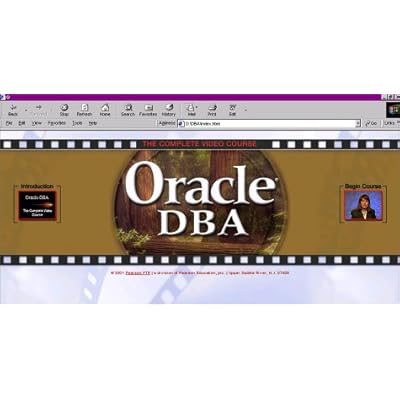
D17171GC20
Edition 2.0
What you will learn:This course is designed to introduce the participants to Oracle HTML DB 1.6. It provides an overview of the architecture. During the course, the student builds an Order-Entry application. And while building this, the course discusses the various steps involved in building a database-centric Web application. The student learns how to quickly build the application. They add reports, forms, items and buttons to the application and include page processing in it. The student is also exposed to workspace administration and security implementation through authorization and authentication schemes. In addition, an appendix is provided that covers the new features in Oracle HTML DB 1.6 with respect to Oracle HTML DB 1.5.




